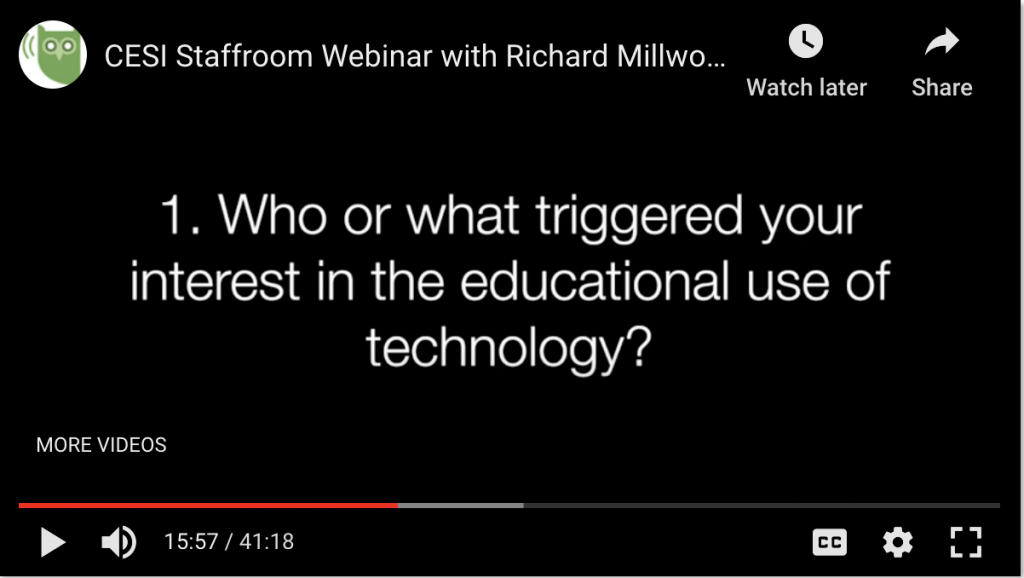 I joined this panel on knowledge creation, responding to the Irish Department of Education and Skills report ‘Digital Learning 2020: Reporting on practice in Early Learning and Care, Primary and Post-Primary Contexts’.
I joined this panel on knowledge creation, responding to the Irish Department of Education and Skills report ‘Digital Learning 2020: Reporting on practice in Early Learning and Care, Primary and Post-Primary Contexts’.
I was asked to respond the following eight questions, and here are my prepared answers:
1. Who or what triggered your interest in the educational use of technology?
My first contact with educational technology was the arrival of microcomputers in 1978/9 – the secondary school where I taught Mathematics and Computer Studies took receipt of a Research Machines 380Z computer, and I took it home every weekend to learn how to use it and how to exploit it. To upskill myself I wrote a computer program in BASIC to make a snooker ball bounce around the screen – when I showed it to children, I was surprised at their enthusiasm to engage with it , even running to the cupboard to find a protractor to hold against the screen to estimate the angle they should fire the ball! The rest is history.
2. What is your primary motivation behind your educational use of technology?
To make the abstract concrete!
3. Describe in your experience effective educational use of technology in formal education.
To enhance the expressive and evaluative power of learners.
4. Describe in your experience effective learning outcomes from the educational use of technology in formal education.
Deeper and broader insight into knowledge coupled with useful skills and the character to persist with learning using technology as an augmentation of learning capacity – competence.
5. What is your philosophy of education?
To recognise the ‘engine’ of learning that every child has, but which is sometimes diminished by a lack of opportunity to exercise free choice and effective action! In other words, I am learner centred.
6. In your experience how is knowledge transferred?
Through expression (a kind of performance of competence) and evaluation (a check on the validity of that performance). Expression of competence may be in many modalities and media, but primarily internal thinking, natural language and formal (computer executable) code. Evaluation (of expressions) (internal check, natural social interaction and formal computer outcomes)
7. What pedagogy best supports the educational use of technology and why?
One that recognises the particular support that technology offers in such a learning model.
8. Formal education in the 21st century should look like….. because….
Something which has designed democratic responses to all the needs a learner has. Because I think that learners must increasingly take charge of their learning.
[ Updated for spelling and minor enhancements, 19/12/2020 ]
